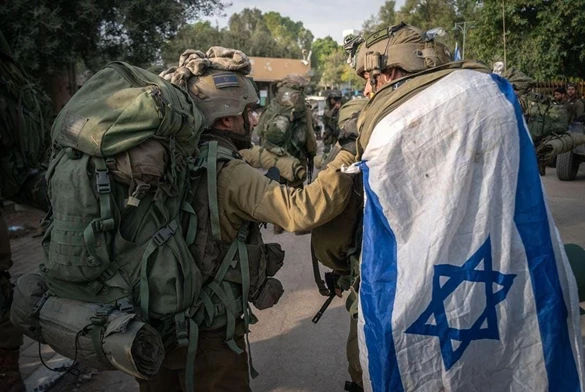The Israeli Defence Forces (IDF), from the two assassinations that took place in quick succession in Tehran, the capital of Iran and Lebanon, may have commenced the execution of Prime Minister Benjamin Netanyahu’s pledge to destroy Hamas as a precondition for ending the war in Gaza.
An explosive device hidden in a heavily guarded complex where Ismail Haniyeh, Hamas’s political office in Qatar, was known to stay in Iran was what killed him. Earlier, it was speculated that a missile strike from Israel did the job. As of press time, that Jewish nation had neither claimed nor denied responsibility for the deadly strike that has left Iran reeling in confusion and embarrassment. The Hamas’ strongman was in that Islamic country as a guest of the government to participate in the activities marking the inauguration of the newly-elected president, Masoud Pezeshkian.
Almost simultaneously, Saleh al-Arouri, one of the most senior figures in the Hamas hierarchy and a leading man on both the political and military fronts, was killed in Beirut, Lebanon.
Iran has vowed to inflict maximum damage on Israel in retaliation. Hamas and their allies in Hezbollah are also planning reprisal attacks. The delay in launching the attacks, they said, was part of the plan to wear Israel out to catch it off-guard.
Already, the United States of America has commenced the process of deploying military resources to the Middle East region to safeguard its assets there and also to offer Israel any help it might require in the event of attacks by Iran, Hamas and Hezbollah. The United States and Israel have committed to face any reactions from that axis of resistance. And the world is intensely frightened at the prospect of a full-blown war engulfing the region.
There are concerns that incidents in that region last week, if not controlled, might escalate the war in Gaza. To avoid this, the United States is mounting a frenzy of diplomatic moves to bring the situation to a manageable level. This was even as Iran was reported to have launched a strike on America’s base in Iraq that caused what is described in military circles as tolerable damage. To most observers of events in the region, for Iran, risks of not retaliating to Israel assassinations in Tehran outweigh risks of retaliation.
For the first time, Iran has admitted publicly that it has nuclear capability. Add this to its burgeoning alliances with Russia and North Korea, and the anxiety in diplomatic circles becomes exceedingly palpable.
This newspaper hopes that diplomacy will be given free rein and that the United States and its allies in the region, Jordan, Qatar, Saudi Arabia and Egypt, for instance, will be able to persuade embarrassed Iran, hurt Hamas and Hezbollah to toe the path of restraint. How far that will go is yet to be seen, especially with the appointment of a hardliner, Gaza chief, Yahya Sinwar, as a replacement for Haniyeh, known in the diplomatic community as a relative moderate.
Before the events of last week, international pressure, including an International Court at the Hague’s pronouncement, had failed to persuade Netanyahu to abandon his obdurate policy of destroying Hamas. The argument that Hamas is an ideology that cannot be easily annihilated has failed to sway Netanyahu, whose political survival is perceived to be intricately hinged on a prolonged war in Gaza.
In our opinion, the Israeli leader is welcome to fight for his political survival the way he sees fit, provided that he does not drag the rest of the world into it. Unfortunately, the United States, in our view, is the only nation that can influence him to abandon what is becoming a revenge mission. We use the word, unfortunately, advisedly because that world power, instead of using its leverage on Israel to achieve peace is, in the opinion of the international community, fanning the embers of heightened conflict. The pervasive position around the world is that there is an urgent need to de-escalate the war in Gaza. And time is fast running out.
With the war between Russia and Ukraine intensifying so aggressively, the China-Taiwan face-off in the South China Sea, and North Korea’s deployment of missile launchers on its borders with South Korea, the world, we are afraid to point out, is sitting on a tinderbox. The election in the United States is fast approaching. The outcome, according to polls, is presently not easily predictable. There may be a change of government personnel and, with it, a policy change. No one knows for sure, especially with the sabre-rattling that one of the presidential candidates has become famous for.
From this premise, we urge all parties involved in the crisis to do everything possible to avert the cataclysm an escalated conflict in the Middle East may turn out to be. If good sense fails to prevail and the worst becomes feasible, there will be no victors, and humanity, as we know it now, may not be the same. No one should desire that.

